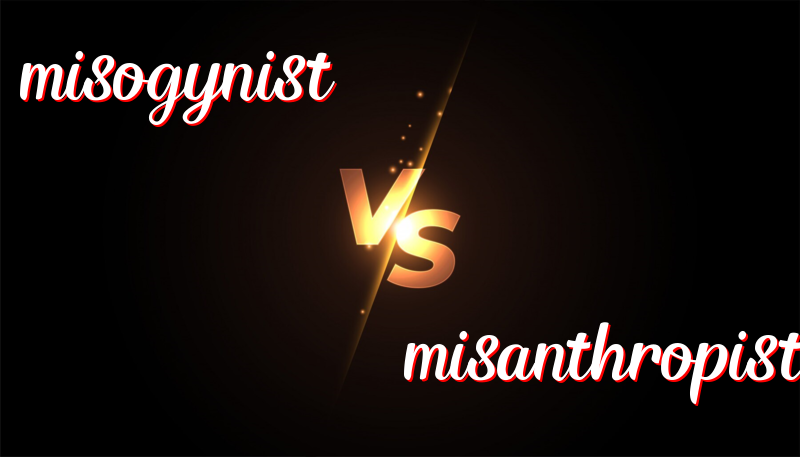Misogynist vs. Misanthropist: Understanding Key Differences and Usage
Understanding the Words: Misogynist and Misanthropist
Meaning of Misogynist
A misogynist is a person who dislikes, hates, or is unfair to women. The word comes from Greek roots. “Miso” means hate, and “gyn” means woman.
History of Misogynist
The term has been used for a very long time to describe negative attitudes towards women.
How to Use Misogynist
- He was called a misogynist because he often made rude jokes about women.
- The misogynist did not want any women to join the sports club.
- Her boss’s misogynist behavior made the workplace uncomfortable.
- The character in the story was a clear example of a misogynist.
- She was hurt by the misogynist comments she heard online.
Trick to Remember
Think of “miso-GYNE” (woman). The word has something to do with women.
Meaning of Misanthropist
A misanthropist is a person who dislikes or hates people in general, not just women. This word also comes from Greek. “Miso” again means hate, and “anthrop” means human or people.
History of Misanthropist
The word has been used to describe people who are not friendly or who avoid being with others.
How to Use Misanthropist
- The misanthropist never went to parties because he did not like being with people.
- She became a misanthropist after many years of being hurt by others.
- The novel is about a misanthropist who learns to like people again.
- The old man was known as a misanthropist because he was always grumpy and alone.
- His friends joked that he was turning into a misanthropist because he never left his house.
Trick to Remember
Think of “miso-ANTHRO” (human). The word has something to do with all people, not just women.
Summary
In short, a misogynist dislikes women, while a misanthropist dislikes all people. Remember the part of the word that stands for women (gyn) or people (anthro) to tell the words apart.

Leave a Reply
You must be logged in to post a comment.